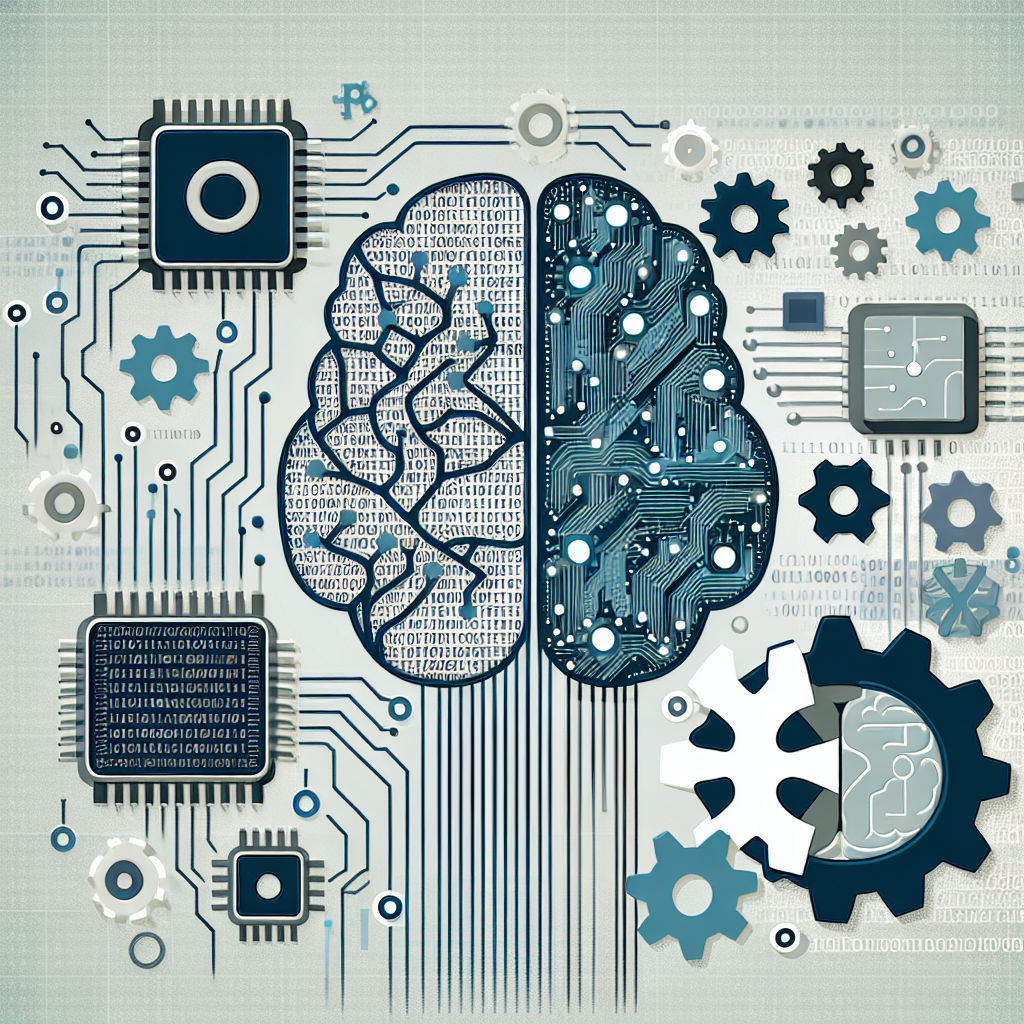The Impact of AI Development on Productivity
Artificial Intelligence (AI) is revolutionizing the way we work and live, with its impact on productivity being one of the most significant aspects of its development. From automation of tasks to predictive analytics, AI is transforming industries and driving efficiency like never before. In this article, we will explore the impact of AI development on productivity and its implications for businesses and workers.
Automation of Tasks
One of the most immediate impacts of AI development on productivity is the automation of routine tasks. AI-powered machines and software can perform repetitive tasks faster and more accurately than humans, freeing up time for employees to focus on more strategic and creative work. This has led to increased efficiency and reduced errors in various industries, from manufacturing to customer service.
For example, in manufacturing, AI-powered robots can assemble products with precision and speed, leading to higher output and lower production costs. In customer service, AI chatbots can handle routine queries and provide instant responses to customers, improving response times and customer satisfaction.
Predictive Analytics
Another key impact of AI development on productivity is the use of predictive analytics to forecast trends and make informed decisions. AI algorithms can analyze vast amounts of data to identify patterns and predict future outcomes, helping businesses to optimize their operations and resources.
For example, in retail, AI can analyze customer data to predict buying patterns and recommend personalized product recommendations. In healthcare, AI-powered systems can analyze patient data to predict disease outbreaks and optimize treatment plans. By leveraging AI for predictive analytics, businesses can make data-driven decisions that lead to improved efficiency and profitability.
Personalized Learning and Development
AI development has also had a significant impact on productivity in the area of personalized learning and development. AI-powered systems can analyze individual learning styles and preferences to tailor training programs for employees, leading to faster skill acquisition and improved performance.
For example, AI-based learning platforms can deliver personalized content to employees based on their learning preferences and performance data. This personalized approach to training can help employees to acquire new skills more quickly and effectively, leading to increased productivity and job satisfaction.
Improved Decision-Making
AI development has also improved decision-making processes in organizations, leading to better outcomes and increased productivity. AI algorithms can analyze complex data sets and identify correlations that humans may overlook, helping businesses to make more informed decisions.
For example, in finance, AI can analyze market trends and predict investment opportunities with higher accuracy than human analysts. In supply chain management, AI can optimize inventory levels and delivery routes to reduce costs and improve efficiency. By leveraging AI for decision-making, businesses can make faster and more accurate decisions that drive productivity and competitiveness.
Implications for Businesses and Workers
The impact of AI development on productivity has profound implications for businesses and workers. On the one hand, AI automation can lead to job displacement and workforce restructuring as routine tasks are automated. However, AI also creates new opportunities for workers to upskill and reskill in emerging fields such as data science and AI development.
For businesses, the adoption of AI technologies can lead to increased efficiency, reduced costs, and improved competitiveness. By leveraging AI for automation, predictive analytics, and personalized learning, businesses can optimize their operations and resources to drive productivity and growth.
FAQs
Q: Will AI development lead to job loss?
A: While AI automation may lead to job displacement in some industries, it also creates new opportunities for workers to upskill and reskill in emerging fields. Businesses can leverage AI technologies to drive productivity and competitiveness, leading to overall job growth in the long run.
Q: How can businesses prepare for the impact of AI development on productivity?
A: Businesses can prepare for the impact of AI development by investing in training programs for employees to upskill in emerging fields such as data science and AI development. By leveraging AI technologies for automation, predictive analytics, and personalized learning, businesses can optimize their operations and resources to drive productivity and growth.
Q: What are the ethical implications of AI development on productivity?
A: The ethical implications of AI development on productivity include concerns about job displacement, data privacy, and algorithm bias. Businesses and policymakers must address these concerns by implementing ethical guidelines for AI development and deployment to ensure that AI technologies are used responsibly and ethically.
In conclusion, the impact of AI development on productivity is profound and far-reaching, with implications for businesses and workers alike. By leveraging AI for automation, predictive analytics, personalized learning, and improved decision-making, businesses can drive efficiency and competitiveness in the digital age. While AI automation may lead to job displacement in some industries, it also creates new opportunities for workers to upskill and reskill in emerging fields. Ultimately, the adoption of AI technologies has the potential to transform industries and drive productivity like never before.

